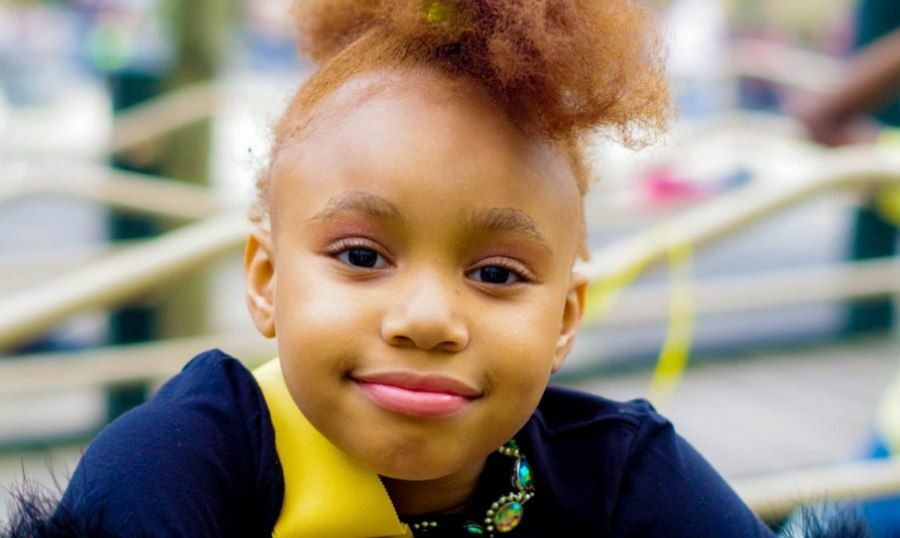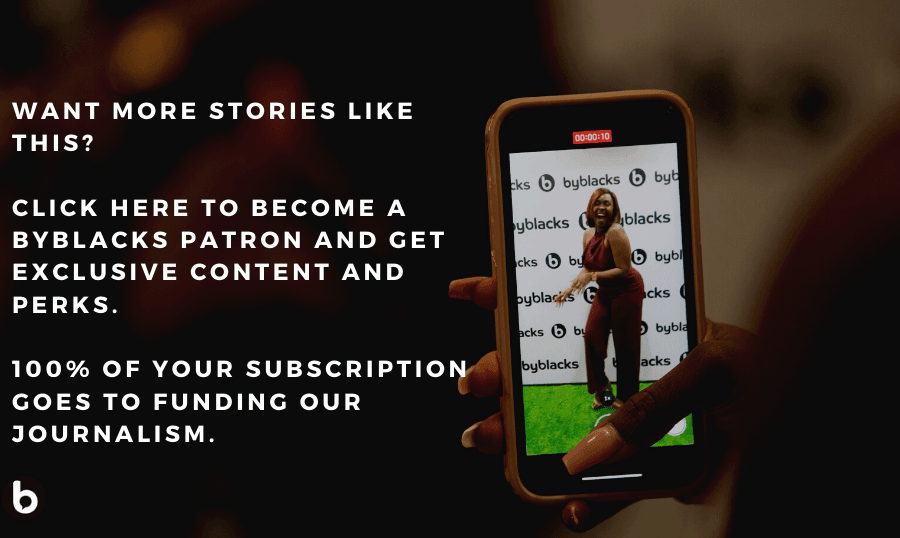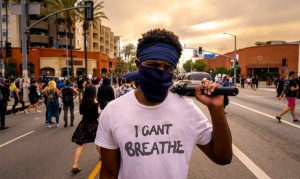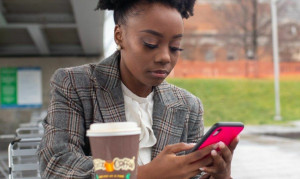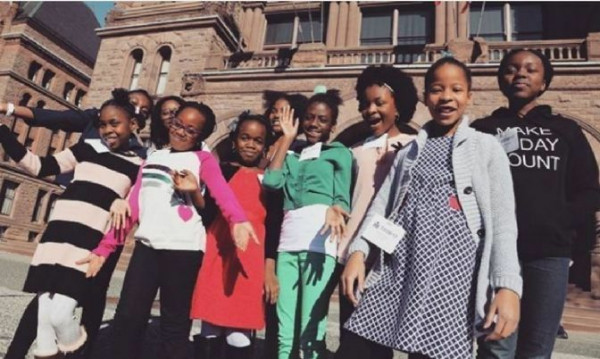With Black girls increasing levels of online activity, it is clear that in spite of any or all of the ills we see online, the ubiquitous nature of media representation requires Black girls to set some terms for our own online engagement. Black girls are used to doing things for themselves. Black women and girls have been adapting to every shift and carrying the reality of the world we live in on our backs for centuries. I am only here to remind all of us that because all forms of Black representation converge online, the job of Black girls (as suggested by Audre Lorde), of defining ourselves for ourselves to survive in society, continues to expand in both symbolism and embodiment.
I've spent the last five years, talking with Black girls about new media and online engagement, and much of racism, ignorance, and insensitive representations I witnessed as a GenXer watching television and films growing up, is what Black girls experience on all forms of media today. There is, however, a silver lining. With the capacity and access to the Internet, we can also see and experience the possibilities that online connectivity can offer Black girls. Through the Internet, we are seeing a multitude of Black women who start and manage their own businesses. We are also able to witness the increase in the number of Black women and girls attending and completing postsecondary education programs and advancing in chosen careers. If you follow the right people, we can also see a variety of positive representations of “Black abundance” that was definitely missing when I was growing up.
Black girls are out here "living their best lives" and being “magic” in spite of the racism, sexism, homophobia, and other forms of oppression that they experience. But there is a price that is paid for trying to be "magic". We know that all of society’s ills are still very present online, even though Black girls seem to be effectively finessing and leaping over challenges to a certain degree, being human, there is only so much that they can endure. It is because of the persistence of these ills (racism, sexism etc.) and barriers that Black girls need spaces where they can learn from, share with, and support each other.
Black girls do not have access to curriculum and materials that consistently validate their histories and their bodies, as they are. Most Black girls do not walk into classrooms and see a teacher at the front of the room who looks like them. The slow progression towards change is evidence that no one is coming to save Black girls from the potential of internalizing negative representations, and no one is signed up to preserve the true spirit of Black girls as they encounter the constant devaluing of their existence. Black girls are forced to learn to save themselves.
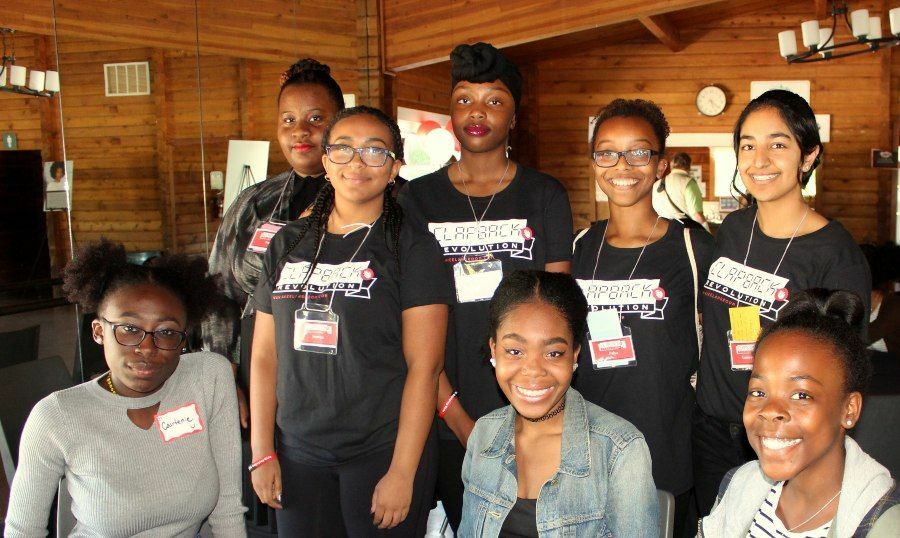 Akeelah's Room event in 2017
Akeelah's Room event in 2017
In 2014, The Power to Be International (PTBI), a small charity, created a girl’s empowerment program, funded by Youth Opportunities Fund (YOF), for girls of colour. This program morphed into Akeelah's Room, specifically for Black girls. We’ve hosted a number of successful events and since then, we have been working to build an online platform for Black girls to represent themselves and support each other. There are a number of spaces run and curated by Black girls online. There is so much more that can be done for Black girls with spaces like this, however, funding and consistency remains a challenge for this volunteer operation.
This summer, Akeelah’s Room introduced a new team of four content curators to reengage our social media. The team is made up of girls/young women living in the GTA. They create content that seeks to educate and represent the diversity of Black girls' priorities.
Truth is, the Internet has become a necessary part of our lives and should, therefore, be seen as a potential tool that can be used for addressing barriers. Due to the limited control that Black people have within large structures like big media, Black girls need to inform themselves, develop a broader critical understanding, and take up space, using their own voices.
The Akeelah’s Room team is hosting a series of sharing circles (online) on Wednesdays in August. These virtual chat sessions will be a space where Black girls can come and talk and share with other Black girls. The Akeelah’s Room team are not experts; they are just Black girls doing their best to live their best lives.
The first topic of the series will cover Black girls and self-esteem will be led by Yvvana. She is Black, she is 17, and much like all the other members of the Akeelah’s Room team, she has some ideas and thoughts to share about maintaining positive self-esteem. Other topics in the series include Black girls in the arts, Black girls and self-care and Black girls and post-secondary education.
The target for the sharing circles is Black girls, non-binary and trans, between the ages of 14 to 25. You can register for sessions through Eventbrite: Akeelah's Room Sharing Circles.
If you are a Black girl or you care for one, Akeelah’s Room is a space for you! Follow us on Instagram, & Twitter (@akeelahsroom) and Facebook.
If you are interested in being a part of this initiative that is working to expand and grow in order to educate and support Black girls, please contact us: This email address is being protected from spambots. You need JavaScript enabled to view it. we would love to hear from you!
Kisha McPherson is the Director of Power to Be International. She is also a faculty member in the General Education and Liberal Studies Department at Centennial College. Kisha holds a Ph.D. from York University, where her studies focused on gender equity education and the impact of social media on the development of the identity of Black girls.
